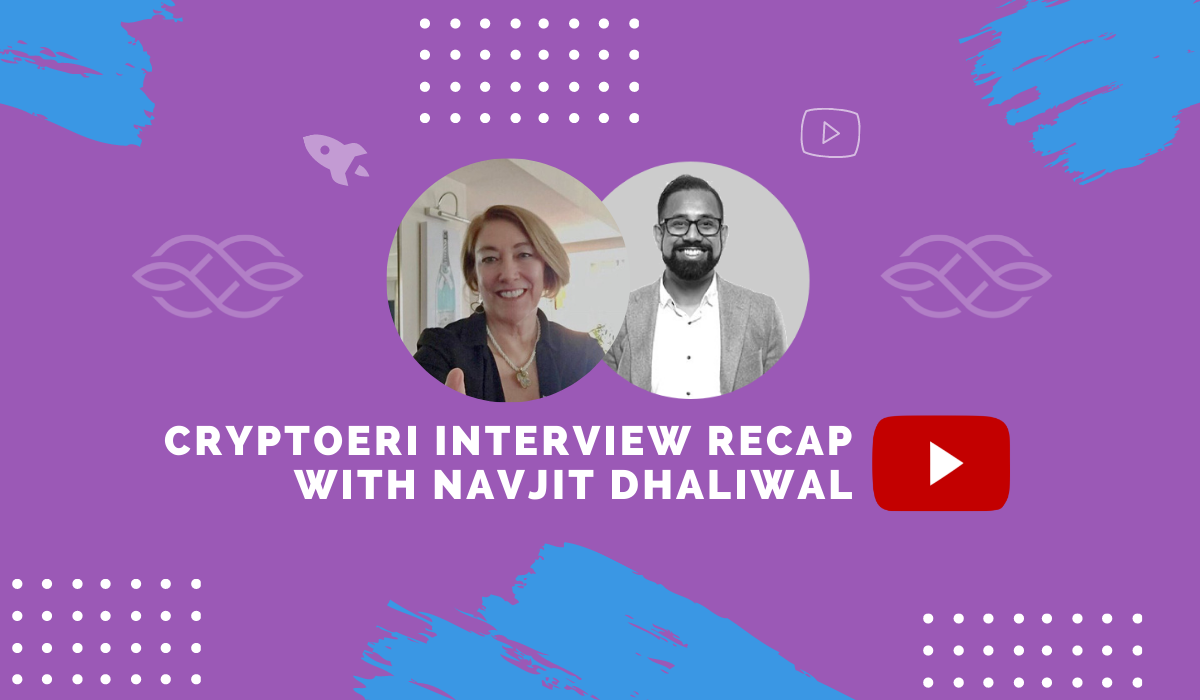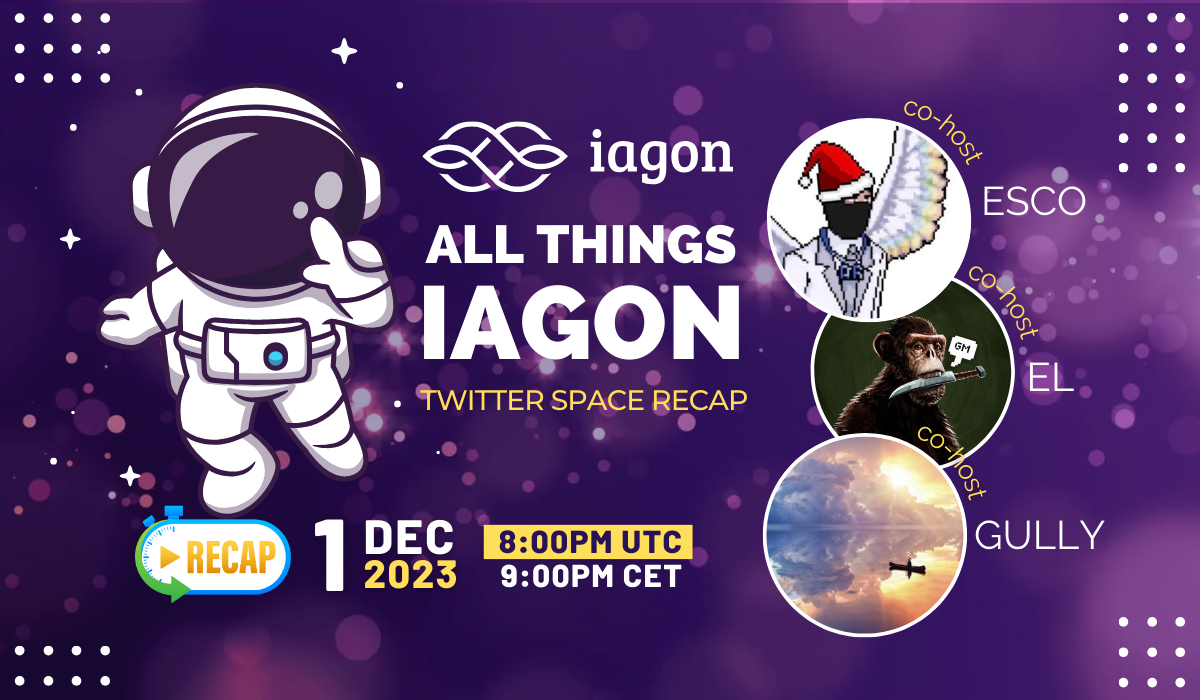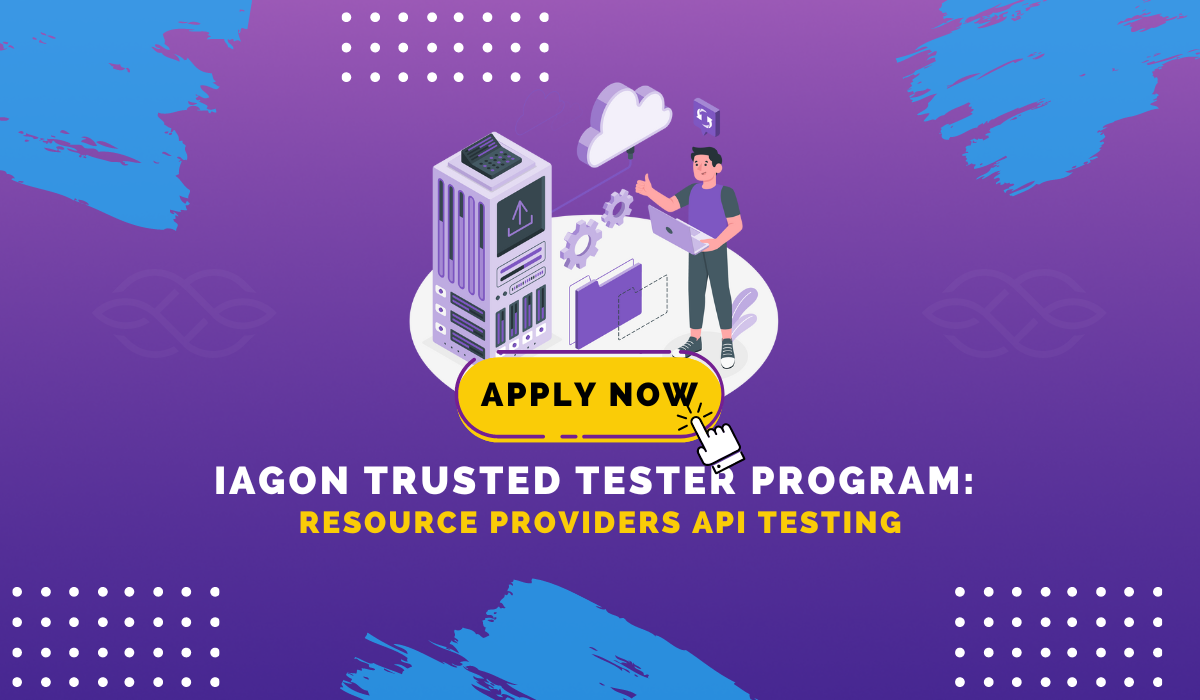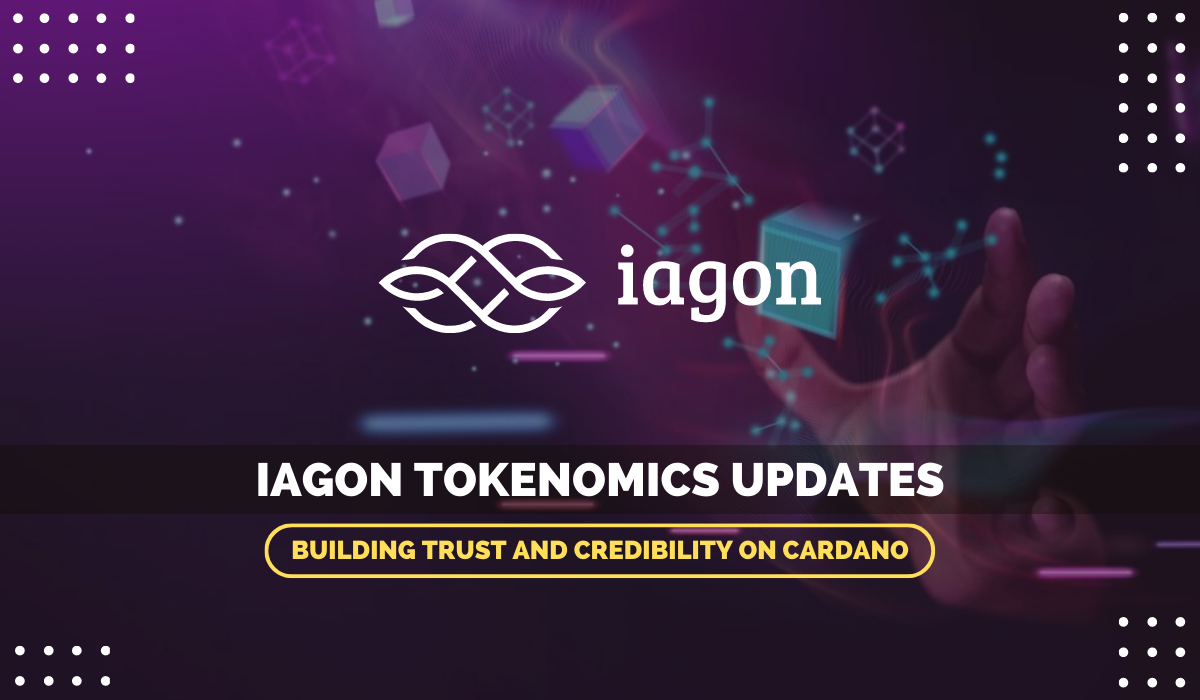Last week, we were excited to have a very informative CryptoEri, a known influencer, interview with Navjit Dhaliwal to inform the community about our successes and what we've been up to lately.
Read text recap of the interview in detail
⭐️ CryptoEri:
Hey, everybody, it's Eri, and we have just a great interview plan for you. I'm so happy to tell you that Navjit Dhaliwal. That's tough for me on the last name, but we will call him Nav. We're going to keep it very simple. Nav is here, and he's got a very innovative business. It's part of the storage economy. It's going to be massive with the coming of all the bells and whistles that Web 3.0 brings, the storage on a permissionless network is going to be just, I think, really in demand.
And so I want to hear a bit of what he is doing and what they will plan for their roadmap in 2022 and just get to know this project a little bit better. So welcome. Thank you so much for joining me tonight.
👑 Navjit Dhaliwal:
Thanks for having us. Glad to be here.
⭐️ CryptoEri:
Well, I think for everyone who may be unfamiliar with yourself, let's start with a simple introduction. Let people know about your background, maybe how this was a space that attracted you to build in and try to introduce what Iagon is for everyone.
👑 Navjit Dhaliwal:
Yeah, sure. I came into the space in about 2013. I'm from the healthcare industry. I'm a dentist by profession, but I took programming plus in high school. So I was into, let's say, innovative technology and constantly reading, trying to update myself on new tech as well. So I came across a Bitcoin paper in 2013. It took a few reasons before I understood the generic concept, and well, it was a product at that time. And then I started reading it, understanding it, and I understood the technology of blockchain around it and trying to imply that in my industry is the healthcare industry.
So I try to imply that into health care records, patient data, patient privacy. So securing patient data with, let's say, blockchain as a security layer and also building around compliance. Right. Which is a big issue today in GDPR. It was not as big back then, but now it's getting much more critical for worldwide industries. And eventually, I moved to Norway in 2013. So a lot is going on in my personal life. So I didn't re-approach the idea until 2017. And that's when there was a lot of other players that were doing something similar, but in a more generic sense, like Filecoin storage, SIA coin, for example, these guys or these projects were doing something similar, but more generically, so not to reinvent the same thing.
And many projects do that, and they mix and match and try to come up with something to work around the solution. But we're trying to create some real-world scenarios here where we can use this as a fundamental tool to protect data and adhere to compliance. So I approached some industry experts who are currently the co-founders in the space. Dr. Elad Harrison was the first one I came to. He's one of the co-founders. He's a machine learning professor, an expert, and Dr. Rohit Gupta, the former director of technology for Expedia. He's from Seattle, US, and currently working as a senior manager at Google. His thesis back in 2005 relates to directly what we're doing. And he was very eager to come on board as one of the co-founding members because it allowed him to finish his Ph.D. work, which he completed in 2005 or started in 2005. So he was eager to jump on board. And we have Dr. Claudio Lima, who's from Houston, Texas.
He's the former director of technology for Huawei and East Asia. And he's one of the blockchain protection the early going. So those are the four founders and me, the early ones that came to the project, trying to create something more unique, something different. For example, look at the blockchain space in terms of compliance and, let's say, the intelligent allocation wasn't available at that time. So what Iagon does? Iagon is the first shared storage economy that bridges decentralization with regulation — enabling us to target enterprise clients.
We are now veering off to Web 3.0, which will be stored for Web 3.0 like Metaverse and NFTs. We do have grants from Innovation Norway and SkatteFUNN. Innovation Norway is government-funded, and so SkatteFUNN is a tax incentive. So we were also approved for that. So we get tax back. Anything we get back for the next two years, anything we develop for the next two years. And we expanded our team this year. We closed a funding round of $3.6 million in July.
And also we're opening offices in Poland and Australia. We currently have 19 team members. We're expanding that to around 25 very shortly. How we differentiate ourselves is we have a few things. Many competitors are doing sharding files and then spreading them across the resource providers. They're allocating their idle resources like storage or compute, but they're doing it randomly. So what makes us different is we have a decentralized, autonomous marketplace, which means that we're learning the behavior of each resource provider. So we're learning the behavior in terms of their performance, availability, trustability, different factors.
We can also include IP location, which is essential for compliance. So if you want to be GDPR compliant as an end-user, we can match you with providers in the EU. Even though we do it randomly, we do it in a specific manner that the end-user requires. So if they need to be GDPR compliant and have a high performance, we only allocate to those resource providers. So that's how we differentiate between the competitors. And of course, since we put a lot of our own time and energy and our own funding into the project.
We were one of the first to patent the technology. So even though we are open source, we will be open source. So we don't want to make it a negative feeling, I know the blockchain community is very open-source, and they like it that way. That's the whole kind of premises of blockchain and the cryptocurrency community, and we don't want to sway away from that. So we want to be open source, but we have to protect our time simultaneously. So many copycats and people are coming into the space, and we want to have some first-mover advantage. So that's our first-mover advantage.
⭐️ CryptoEri:
You have a lot of talent. It sounds like the team is just phenomenal blockchain. I think it will be perfect for what you're trying to do. Maybe then you will strive to be completely decentralized in the future. But in the meantime, in the building process, it sounds like you'll be more of a hybrid solution. Right.
👑 Navjit Dhaliwal:
We will be fully decentralized, but I don't think any other project can be fully decentralized. The only project that can be fully decentralized is Bitcoin because they have no enterprise behind it. They have no person putting it in the correct direction. It's a collaborative community. There are no persons behind it. It's out there. And I don't think it's next to impossible to do it nowadays and have that. That's why Bitcoin is so big. It's fully decentralized, meaning that there's from every aspect from the business side and the actual open-source and everything.
Everything is decentralized. But nowadays projects are a lot of the projects are working in a hybrid solution. So many projects, even Cardano, are working in a mixed solution because a lot of their have they're developing in-house, releasing them to the public, and then doing open source. So it's kind of like a hybrid solution. Right. And a lot of projects are working that way right now. So we try to work in the same way that other projects are working.
⭐️ CryptoEri:
Yeah. I'm just kind of curious. So it sounds like you are very well informed of the advantages or disadvantages of being centralized or decentralized. What do you think is the most significant advantage to being decentralized? And then what is a disadvantage to being decentralized?
👑 Navjit Dhaliwal:
I think that there's a lot of advantages to being decentralized. So one of the advantages is the cost-effectiveness. So it's much cheaper to be directly in contact with the resource provider, for example, than if you would use middlemen like AWS or Google to connect to a resource provider. So, first of all, cost-effectiveness is one thing. Giving control back to the people is a huge advantage, I would say. And that one of the biggest things about blockchain, in general, is that it gives power back to the community and sways away from more giant enterprises controlling everything.
And I think that's the most significant point that we can make in data and cloud is giving data and privacy back to the people, the power to control their own data, the power not to share something or share something and have control over what the sharing protocols are for that specific file. So it's a huge, huge advantage in terms of disadvantages. So I would say in the early stages, I would say that one solution, especially in the beginning stage, is not as secure or it's not as performing as a centralized service.
It's not as efficient. But I think as adoption grows, especially in this space, adoption is racing. And once it grows and grows, I believe that the security and performance will efficiency will fix itself. So scalability is a big issue in decentralization. And that's the reason, right. And adoption will fix that.
⭐️ CryptoEri:
What about the governance for your project? They're still being decentralized. There will have to be some sort of governance moving forward. How does that shape up?
👑 Navjit Dhaliwal:
Yes. Eventually, we have to have some kind of direction in the beginning. And I think that most of the projects in the early stage get funded. They get supported by the community to sell a vision. So we are selling a vision to the community and saying, okay, this is the direction we're heading. And obviously, there are successes, and there are nonsuccesses. Right. And obviously, no one wants to be in that nonsuccess area. Right. So there has to be someone that the community believes in that can understand.
Okay. We're taking the right path here. We're taking the proper steps to get to that success. And eventually, once we reach that, there has to be some governance system not just allocated by the enterprise itself or the people behind the project. But once we get those goals and the end goal, there has to be governance where the community itself can control certain aspects of the project. But we are not there yet. And I think that, for example, Bitcoin is already there. Bitcoin is having these.
And that's why there are so many forks, right. So many hard forks, and the community can drive whichever direction they want. And that's what's the beauty about Bitcoin because adoption is there. It's already correct. And we want to try to get there.
⭐️ CryptoEri:
Yeah. I was impressed that the tap route went through that whole process to see that just done. That was something to see a genuinely decentralized project make that step. That was interesting. So I would imagine starting your clients, your clients, you're probably going to go after the health care sector.
👑 Navjit Dhaliwal:
You'd be surprised because the healthcare sector is tough to tap into. It's very political, and there's a lot of, let's say, 'hula hoops that you have to jump before you get to the end goal. So I think for the first clients we are going to be targeting. We have some pilot customers onboard: Septor OS and a couple of other projects. But also, we are targeting mainly the blockchain space because it's easy to go right to the points and understand the advantages of the technology instead of in a traditional market where you're explaining the situation and making them try to understand from your side.
So it's a harder sell. But at the same time, for the blockchain community, our main target groups in the blockchain community are initially going to be Mataverse and NFT decentralized storage for Medaviruses. Decentralized storage for NFTs. These are our target beeps for Web three, but for traditional spaces, we have, for example, in talks with a company called Septor OS, which is in Norway, and there's a legal firm. We are trying to talk with them and see their clients' pain points, especially regarding GDPR compliance.
So GDPR compliance is a big issue these days, where companies in the traditional sense cannot track that compliance in a live setting, and authorities cannot also track that. So authorities have a hard time understanding the compliance. They're only going after the bigger fish like Google and Facebook that are non-compliant because they don't have the resources to send people everywhere to do control checks on different companies, especially SMEs. So we want to be there. We want to solve that problem. And through Septor, we are creating a compliance live GDPR compliance tool, which can help companies and private individuals.
Let's say they want to send a file. They can understand the transparency of that file if you don't want to share it with a third party. Suppose you want to delete a specific date, not to prevent that from happening, but to give more transparency back to the user to understand. Okay. Your file was shared with a third party. Your file was not deleted. So these kinds of aspects provide more transparency, more power to the end-user.
⭐️ CryptoEri:
Yeah, that's going to be world-changing for people's data. I think that will bring much value to the space because we don't have that right now. In the legacy systems, in terms of your differentiating your product. I think I got that there was one word that you touched on, which I think would be helpful for everyone, and that is the sharding. I think people hear this word in blockchain, but maybe they don't quite understand it. And then how does that benefit what you're doing to use the sharding technology? I think it would be helpful.
👑 Navjit Dhaliwal:
There are a few definitions for it and different in the sense that if you apply to various contacts. But in our mind, in terms of sharding files, I can give you a simple example of what that means explicitly. So if you take a puzzle and put a permanent marker on the puzzle, and the permanent marker is the first encryption, then you're slicing that puzzle and, let's say, putting it through a shredder. Right. So you're making multiple slices of it. So that's the sharding protocol.
And then you're making multiple copies of each tiny shred, and then you're allocating it to resource providers on the network. So these shreds are going so specifically. If that shred was, for example, on a PC and that PC got hacked, there's no way of knowing what that piece of information is. It doesn't give you a picture of the puzzle. It doesn't offer anything because it doesn't make sense until you combine all pieces. And to combine all those pieces, you have to have your own private key.
And the only person that has access to that is the person that uploaded it. So there's no one, not even Iagon. So not anyone can read that information.
⭐️ CryptoEri:
Yeah. It creates a secure environment, doesn't it? I'm really curious because you are the first person I've talked to in this sort of format building on Cardano. And that, to me, is exciting. I just want to hear why you chose to build on Cardano?
👑 Navjit Dhaliwal:
So there are a few reasons why we built on Cardano. Why do we choose to migrate to Cardano? We were on Ethereum, and now we're moving over to Cardano. So a few things are cost-effectiveness, interoperability, and scalability as well. So there are three reasons, but also not to take away from the ethos of Cardano. Cardano is empowering people to give power back to them, especially, for example, all the things they're doing in Africa. They're empowering people to get their own identities and have a banking app, financial and an identity app.
So they're helping a lot of people. And we want to have that same kind of effect on empowering people. We want to empower people by giving power back to them, controlling their own data, having privacy, and having security. So that's a few reasons that we chose Cardano. And also they're built from long work of, let's say, educational work. Right. So they didn't just deploy something. They did a lot of research, a lot of paperwork. They studied a lot. So it's research built, right.
And when you have that core from that, that builds a strong structure, strong core. Whereas, for example, Ethereum is made more in a freestyle. So now you see Ethereum trying to fix the flaws that they originally could have settled in the beginning. Right. So they're working differently. They are working counterproductive where Cardano is building from the ground up. So that's why it's taking so long for them to get to where they are, right?
⭐️ CryptoEri:
Yeah. But I think 2021 has been a tremendous year for Cardano this year. It will make more significant progress. Yeah, I know. And I think that many people align with the project's ethos, so I understand the passion behind that choice. But I just wanted to hear from you. I think it's great. So your partners or clients, are there anybody you can mention or share with everyone who may be someone you're working with, someone you have signed an agreement with, or someone you are hoping to work with in the future?
👑 Navjit Dhaliwal:
Yeah. We have a couple of signed MoUs right now. We're very excited to share with the community. Unfortunately, we can't share this right now, but we do have a data center that's over 250 data centers across the world. Datacenter company is one of the largest in the world. So we are excited to announce that partnership. We're going to the final phases. We're going through a penetration test and seeing if everything is okay in the core before releasing that information. We have a couple of other partnerships with the Cardano exchange and Cardano DeX and a Metaverse project that we will announce when we're allowed.
⭐️ CryptoEri:
Do you think it will be this year, maybe? Or.
👑 Navjit Dhaliwal:
I think at least one or two will be this year, and then the other one will probably be in January.
⭐️ CryptoEri:
Exciting. So the roadmap for 2022. What's on the priority list?
👑 Navjit Dhaliwal:
So first, we want to do the ERC 20 converter, a singularity net actually, recently came out yesterday, releasing information IOHK. And they're called. Now they released a statement that they have an ERC-20 converter. So we are hoping to get access to that. I mean, it's a closed source currently. They want to make sure they fine-tune everything before they release it on mainnet right now. It's on testnet. So we hope to get access to that. So that's one of the priorities trying to migrate some of the tokens, token supply to the Cardano native tokens, and then provide some incentivizing scheme for users to stake their data and earn IAG Cardano tokens.
That's one of the priorities. We also have MVP for Alpha testing and private users. We're going to have a limited amount of slots. So I urge the community to keep an eye out for that. It's going to be in January. So we also are developing a Network Explorer, user administration access. So like sharing files and data access management with possibly functional NFTs. We're exploring functional NFTs, but we haven't decided on which route to go, but that's Q3 in terms of data access management.
And then, we have the GDPR real-time compliance tool, which is also Q3 next year. And we also have Agora next year plan for Q3-Q4 around that time. But the initial kind of, let's say, priorities are for the sharding model and also to make sure the MVP on the alpha test and the beta test is released in the early next year. So that's our priority.
⭐️ CryptoEri:
It's full. You have a full schedule. So you do have a token. I think it'd be perfect. It's the $IAG token if you would explain its tokenomics and how it fits in what its utility is and its role.
👑 Navjit Dhaliwal:
Yeah, sure. We released a recent blog article on our website, and the community feels free to check it out on our blog.iagon.com, and you can scroll down to check the other way. So how it works is a portion of both transaction fees from the storage exchange or the marketplace and the yield by lock rewards go back to Iagon. But let's say people stake IAG tokens. They can earn revenue from the marketplace as well. And along with any revenue that Iagon earns.
So this is a 'shared revenue model' where 10% share. Yes. Shared revenue for IAG holders so they can stake their IAG and earn income as well. And if you're a resource provider, you can also earn tokens on top of that. So if you're providing your storage space or your compute, you can also earn from that, and they're committing storage, and it's locked. The resource provider is committing storage, and it's locked. So the reward is locked for that period that the storage is committed for, and it's released after the storage has been committed.
It's not that the rewards aren't released right away. They're released after that. So we see proof that storage was provided at that time. During that time, it's locked the rewards, the rewards are earning yield on top of that. So it's also for the IAG holder. So there's a lot of rewards for the IAG holders, and we're going to have delegates taking as well for our pool. So there are many incentives for creating a lot of utility around the IAG token because it's the most crucial aspect for investors.
Currently, they want to see some early returns and benefit from early adoption. And also we will be releasing an ambassador program that will help research providers come on board early and support the ecosystem and create awareness around the project.
⭐️ CryptoEri:
What do you think the average lock time would be? I know there's going to be probably a lot of ranges.
👑 Navjit Dhaliwal:
But what do you think the average would be so the resource provider's reward is locked and depends on how much the end user commits. So, if you're a user and bought one month of storage, that resource provider, that reward is locked for one month. Yes. So the minimum is 30 days.
⭐️ CryptoEri:
I got you. So you got a minimum. But somebody might choose to do a lock-up for two years, for example, right.
👑 Navjit Dhaliwal:
Yeah, of course. And earn more yield. And also, they can lock the rewards as an IAG holder and earn a portion of the revenues that are coming into. Iagon as well.
⭐️ CryptoEri:
Does the yield go up if the lock time is longer?
👑 Navjit Dhaliwal:
That's the idea. Yes.
⭐️ CryptoEri:
That would make sense to me. So I would think to do that. Do you have any percentage of the yield? Can you give an idea of a range currently?
👑 Navjit Dhaliwal:
No. We want to make sure that we emphasize or communicate something.
⭐️ CryptoEri:
Yes. I understand.
👑 Navjit Dhaliwal:
We don't want to give out a number that we don't go with, so we will release that information once we have fine-tuned that model.
⭐️ CryptoEri:
Yeah. Well, I had to ask just because that's what everybody's thinking.
👑 Navjit Dhaliwal:
It's probably an important question. Definitely.
⭐️ CryptoEri:
I think this will be an exciting project to follow for sure. Is there anything that I missed to ask you that you want to be sure to let everybody know? Do you have a discord channel? Should we go to Twitter? Where can people follow your project?
👑 Navjit Dhaliwal:
All of our socials are listed on our website. So if you go to www.iagon.com. Then if you scroll to the bottom of the page, all of our socials are listed. If you want to communicate directly to us, the best way to reach us is Telegram or Discord. We still have the communities very early, so we don't have a large community on Discord, the largest community on Twitter. So you can also follow us on Twitter and Telegram. We are active. We have a lot of community managers.
We're happy to answer your questions regarding what might be missing or what we might have missed on. So I want everyone to know there are many questions regarding and I think the biggest concerns for investors are the tokens and the token prize. Token utility. Token demand and token utility go hand in hand. Right. So we want to make sure we emphasize to the community that we are working hard behind the scenes. It might not be that we portray everything publicly right away, but we want to ensure that they know that we're trying our best or trying our most challenging to showcase what we're working on.
We cannot share everything right away. But that is the plan to make sure that we prioritize our development first and then showcase to you guys what the results are, and we're happy to answer questions in the community in terms of Telegram. So feel free to ask us. We're open. We're also always transparent, and we're never shy away from questions. So feel free.
⭐️ CryptoEri:
It's good. If you're approachable. I think the community is always appreciative of that. So I think that's really good. Yeah. Well, it's been just really a pleasure. And I am wishing you the very best in hitting all those goals that you have. You have that full schedule coming up. And I think your timing is perfect for this space.
👑 Navjit Dhaliwal:
Yes. It's perfect timing right now. Even though we have been here since 2017, I think now it's the ideal time for this kind of project, especially cloud storage and cloud computing.
⭐️ CryptoEri:
Yeah. With the coming of the Metaverse and NFTs, it's a lot of data to be stored, requiring a specialty. So there's going to be an increased need for that. So I think you're just positioned to be very successful. And I wish you the very best.
👑 Navjit Dhaliwal:
Thank you.
⭐️ CryptoEri:
Yeah, I appreciate that. Thank you. And I hope to check in with you. Let's give it a few months out into 2022, and we'll check back and see how you're doing.
👑 Navjit Dhaliwal:
Not a problem. Just reach out anytime.
⭐️ CryptoEri:
All right. Thank you.
👑 Navjit Dhaliwal:
Take care. Bye.
Please follow us on social media and feel free to drop any questions you may have about the project directly in the telegram group. Our team is always open to discussions.




